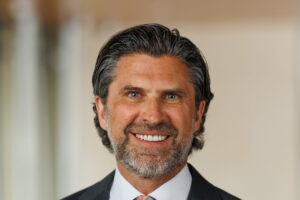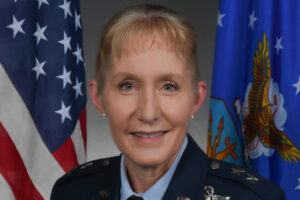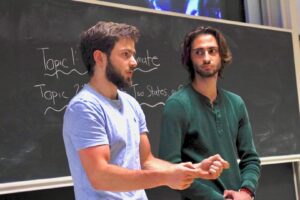The National Science Foundation (NSF) has awarded almost $2 million, its first grant focusing specifically on what four-year-olds know about science, to The University of Texas at Austin’s Center for Science and Mathematics Education.
The grant is funding a project called Building BLOCKS for Science, which began this September. Data collected during the project will help educators determine what young children should know about science by the time they enter kindergarten.
“The reality is that most children enter kindergarten already having gone to ‘school’ for at least a year or two,” said Dr. James P. Barufaldi, director of the College of Education‘s Center for Science and Mathematics Education and the grant’s principal investigator. “There’s an urgent need to offer some coherence to what children should know and do know when they start kindergarten.
“We will be investigating the science learning progression in young children because it’s imperative that, as educators, we do all that we can to prepare students to succeed in science, technology, engineering and mathematics. For them to be prepared to do well in these areas in junior high and high school, for example, and then later as part of the American workforce, they need a very strong conceptual understanding of science and need to have developed scientific habits of mind during the earliest years.”
Very little research has been done on appropriate science instruction for young children, so the NSF grant will offer a unique opportunity to investigate the boundary between pre-kindergarten and kindergarten-second grade science understanding. According to Barufaldi and co-principal investigator Dr. Mary Hobbs, by the end of the four-year grant period, they hope to have answered the following questions:
- What should children entering kindergarten know and be able to do in science?
- Will young children’s knowledge and conceptual understanding improve with structured hands-on instruction?
- Will teaching improve when teachers can promptly assess and track student mastery using a handheld electronic device and the appropriate assessment software?
To gather the information, a research team from the Center for Mathematics and Science Education and participating Austin area teachers of four-year-olds will work together to assess students. The team will observe a variety of school settings, including public and private preschool classrooms, head start programs and day care facilities.
The children in the study will be introduced to science activities and have an opportunity to demonstrate their science skills and understanding of science concepts. The project will focus on children’s understanding of “big ideas” in science and not on their ability to memorize details without an actual understanding of the concepts.
“This is a tremendous time commitment for the 25 Austin teachers who have agreed to participate,” said Hobbs, who is coordinator for science initiatives in the Texas Regional Collaboratives for Excellence in Science and Mathematics Teaching, “but they’re very hungry for good science materials and effective guidance in how best to teach science. The teachers who volunteered will receive such a wealth of materials, resources, intensive professional development training and mentoring.
“Up to now, teachers of young children have navigated science instruction by using a combination of good instincts, helpful recommendations from seasoned peers and the rare bit of literature on the subject. They’ve done an exceptional job–all we will be doing is coming along and collecting data to see if we’re all moving in the right direction and if there are ways we can help make the teacher’s job easier.”
Acclaimed early childhood educators and authors Dr. Robert Williams and Dr. Elizabeth Sherwood, faculty members at Southern Illinois University Edwardsville, will be providing professional development support for the 25 Austin teachers who are part of the intervention group. The Building BLOCKS research team also will observe and collect data on a control group of 25 Austin teachers and their classrooms, but this control group will not receive intervention.
“It’s entirely possible that the outcome of this study will significantly change early childhood science instruction,” said Barufaldi. “Almost no work has been done in this area since the 1960s and if we find, for example, that these very young children can learn far more science at an earlier age than was previously believed, then science instruction in all grades will be affected.”
Barufaldi and Hobbs also are wrapping up a $286,311, three-year NSF grant to determine which professional development opportunities are most likely to empower science teachers, contribute to teacher retention and, consequently, improve student academic achievement.
The Center for Science and Mathematics Education offers training opportunities for science teachers in Texas schools and promotes strong undergraduate and graduate programs in math and science. The award-winning Texas Regional Collaboratives for Excellence in Science and Mathematics Teaching, led by Executive Director Dr. Kamil A. Jbeily, is housed in the center and is its largest science outreach program.



